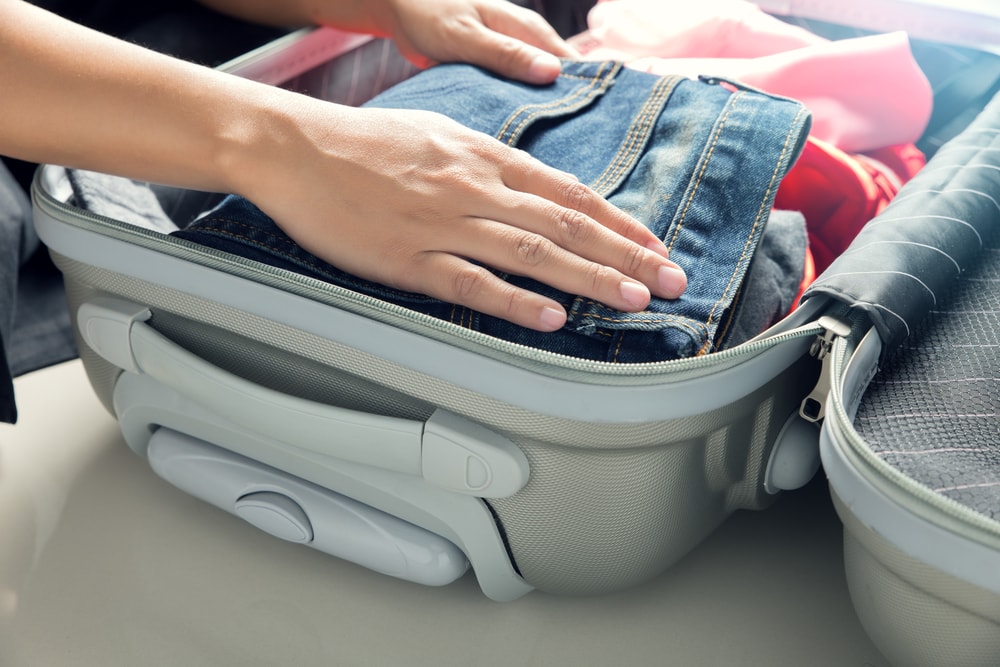People who are struggling with a substance abuse addiction and who have made the decision to participate in a drug rehab program following detox will need to prepare for their stay accordingly. Depending on the program’s duration, clothing and personal effects should be planned for each day of residence. Typical programs average fourteen to thirty days. Because rehab program preparations are unique, here are a few tips to keep in mind.
What to pack
1. Clothing
Depending on the local climate and season of the year, enough clothing should be packed to last seven days. This assumes that the program facility offers laundry privileges so that clothing can be washed and worn again the following week. Most programs prefer clothing to be comfortable and relatively conservative, which means that the clothes should not be particularly revealing, such as tight shorts or low-cut shirts or blouses for either gender. Graphic t-shirts are discouraged, especially those with potentially inflammatory or discriminatory slogans or statements. Layered outfits work well in case of inside temperature changes due to heating or air conditioning adjustments. Easy-care fabrics are recommended to avoid the need for dry cleaning or special treatment. It is helpful to pack using lightweight luggage when feasible.
2. Hygiene and grooming
Some programs have specific rules about what can or cannot be brought. Most ban grooming or hygiene products that are aerosol-propelled and that contain alcohol, at least as a leading ingredient. Clear plastic containers may be required for toothpaste, body wash, and deodorant. Hair care products are generally allowed, along with perfumes, but nail polish or polish remover are frequently banned. Permitted brands of mouthwash should be newly purchased and unopened. Over-the-counter medications for pain relief, allergies, or skin care may need to be approved by the Admissions office.
3. Personal effects
Jewelry might not be permitted, except for meaningful items like a wedding ring or special wristwatch. Patients are discouraged from bringing valuables of any kind, whether jewelry, collectible items, or designer accessories. Photographs of family members, a personal diary or journal, and other keepsakes may be acceptable but should be checked with Admissions personnel first. Electronic devices like a cell phone, iPod, iPad, or laptop computer will need to be approved by the drug rehab program ahead of time.
4. Finances
Participants in most rehabilitation programs will need to bring an insurance card, a photo ID, a credit card or debit card, possibly fifty dollars to a hundred dollars in cash, and any other financial records or purchase methods that are advised by the program administrators. Specific program costs will be arranged before entering the program and may include detox program fees as part of the recovery process or as a separate program.
5. Recreation
Most rehabilitation programs include certain recreation or entertainment activities as part of the recovery process, while others are forbidden. For example, participants are not usually allowed to bring personal DVD’s or videos, although favorite or selected books may be permitted. In general, residents are encouraged to use free time for browsing recovery-oriented resources like films or books. Internet access may be provided or it may be restricted to certain times of usage. Socializing with other participants may be approved within group activities only. Clarifications can be made by consulting program coordinators.
6. Medication
Prescription medications that were being used before entering the program might be continued by the participant bringing those medications to the program. However, in some cases, the person may be issued new prescriptions or different prescriptions by program medical staff. Vitamins, nutritional supplements, and other optional medicine should be mentioned at the time of admission.
7. Miscellaneous
Anything else that people might want to pack for their stay in an inpatient recovery program should be discussed with program administrators during the registration process. Anything that the person brings that is not allowed will likely be confiscated, but it will be returned upon discharge from the program. In some cases, family members or a designated friend can pick up the things that cannot remain with the program participant.
Packing for an inpatient stay for substance abuse recovery assistance is similar to planning for any other type of getaway. But due to its specialized nature, the participant should ask for a packing list or check with staff about any items of uncertainty. Checking ahead of time will make the packing process more efficient and prevent unintended mistakes.

